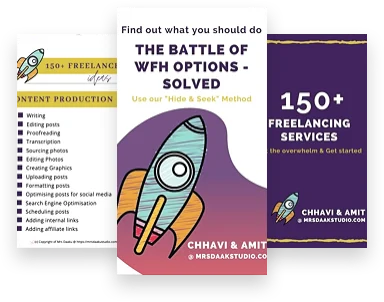I know why you are reading this – You are a struggling freelance writer and a non-native English speaker.
Stuck in low paying jobs. Searching for clients on portals. Getting rejected again and again because you aren’t a native English speaker. Writing for peanuts and almost on the verge of quitting this cool thing called “freelance writing”.
Related:
I was something like this guy below (yeah, no kidding!)
The few times I could actually land a job with a high paying client, they rejected me because I am NOT a native English speaker.
And, they “know” I will make a thousand grammatical errors or have other problems with my writing!
Ouch! It hurt.
As a freelance writer and non-native English speaker, I had a tough time convincing clients I was the right choice.
But, don’t let that frustrate you or dampen your spirits. You can make a good amount of money as a freelance writer and a non-native English speaker. I am telling you that with my experience.
In fact, once I followed all of the strategies in this post, I quickly landed a client that paid me $250 for a single blog post.
Let me tell you though, it is not easy. Not even a bit, but it is highly possible!
There is a lot of hustle. A lot of burning the midnight oil. A lot of learning. Even more rejections.
Note: If you are struggling to find and land freelance writing clients, you should check this out.
But, once I understood a few things (which I will share with you in a moment) I quickly made $900 from just 1 client.
Without further ado, I will share things that worked for me and how you can earn your first $1000 as a freelance writer and a non-native English speaker.

1.Know what you are worth (+ remember it ALWAYS):
You are the best judge of yourself. You know what you are worth!
I realized I couldn’t be a full-time lawyer. It did not fit into the larger picture and so, I quit. (I was shit scared, but I did it anyway)
It was going to be tough but I never doubted my abilities and continued to learn new things and improve my skills.
By the end of the second month of actively freelancing, I earned $900.
If I undervalued myself or doubted my skills, I would have never achieved what I did.
The point being,
You should know where you stand.
Understand the content development and soak in as much information as you can.
You should spend time in understanding client’s requirements and business.
You should spend time on writing each line of that post and spend even more time writing those headlines.
I remember taking a week’s time to create one in-depth post that is informative, actionable, engaging and has no fluff. But, you know what? It paid off.
Actually, that was one of my initial gigs which paid me $450 for about 3000 words.
Do not get tempted to take up any job which pays you lesser than what makes you feel used or undervalued.
Quickly do your math and see what is the bare minimum required to survive in your country. Aim to achieve that with your low paying clients to pay your bills.
Do not overwork yourself with them. Instead, use the free time to build up your business and land high paying clients.
Note: If you are struggling to find and land freelance writing clients, you should check this out.
2. Keep improving
I do not have any degree in journalism or writing or anything that relates to this industry. Besides this, I was a freelance writer and a non-native English speaker.
Everything put together, I felt I wasn’t the right fit for this industry.
I made Google my best friend and started learning all the basic skills required (like SEO). To start with, I learned how to use this 6 excellenet but super simple writing tools
I quickly realized I loved doing this. Next step was obvious
Set crazy targets for myself and work towards it. I read lots and lots of blogs written by people who are amazing writers.
I learned a lot of tricks by just reading them. Made notes of things I should remember.
Put post-its all around my workstation with things that evidently works well.

3. Reject low paying jobs
Don’t fuck with your mind and time. As a freelance writer and non-native English speaker, you really don’t have time for nonsense.
You could spend the rest of your year writing for low wages or land one client which pays for 20 of those shitty paying clients.
I know, we will all prefer the second one.
Be confident. You do not have to work for that low and undervalue yourself.
Like I said, decide on a minimum rate and do not go below it.
4. Pick a niche
I chose technology as my niche when I started out and stuck to it! I love writing in this field. It is challenging!
A writer who claims that he/she can write everything is not the first choice of the most high paying client.
You know why?
Because you can never claim *expertise*.
I know writers who are generalists and earn well, but that just did not work out too well for me. I was all over the place and confused to the core.
If you have a niche, you can be focused and improve your skill set in that industry.
You need to show your potential clients that you are indeed the right choice for them.
And, that can be done by picking a niche and putting it everywhere on social media. I market myself as a freelance writer and wherever you find me it will say the same.
5. Market yourself as a business
Ditch the “I am desperate” mindset. Own a “This is business” mindset.
Related:
- 5 surefire ways to come up with clever blog names
- What to do when freelance writing clients ask for a FREE sample?
- 10 ways to land freelance writing clients as a beginner
Once I changed from the first to second, I noticed a difference.
No one wants a desperate job seeker handling their projects. Brands prefer working with people who know what they are doing
You gotta be confident (even though you may not know anything!). Yes, you read it absolutely freaking right.
Revamp your social media profiles. Start connecting and networking with your potential clients.
You really need to put yourself out there!
Remember – no one is going to dig through the planet to get to you (especially when you are a freelance writer and a non-native English speaker). You need to approach clients and this detailed guide to writing an email pitch can help you get started.
Related:
6. Create kickass samples
If you are a freelance writer and non-native English speaker, you need to show kickass samples.
You can link to your existing blog and if you do not have one, create a few kickass samples in your niche.
This guide tells you exactly how to create a killer freelance writing portfolio
Give your best to these samples. They are a window to your work.
You cannot be a “writer” without having anything to show.
That said, always remember to take a break and party. This guide can help you increase your productivity by multifold.
What is your biggest fear or roadblock in achieving high paying clients as a freelance writer and a non-native English speaker?



Jane
Sunday 11th of November 2018
Thank you so much for this article. I am a nonnative English speaker and I even worked as a teacher in the US but have problem with my mindset. So this is encouraging. I have wanted to become a freelance writer for sometime. I think this here is the outlook I need to forge forth.
Sukanya
Thursday 11th of October 2018
I do not know whom to approach and where to approach. I would like to write on blogging tips for newbie bloggers but I do not seem to get any place where I can approach with this niche.
Chhavi Agarwal
Thursday 11th of October 2018
Hi Sukanya,
Do you want to get into freelance writing and would that be your niche? I am sorry, not sure if I understand the query completely. You can start by guest posting on blogs (to build a portfolio) and then pitch to your target clients. I talk about all of this in the free course on Growing Your Freelance Writing Income. You can access it here
Let me know if I can help in anyway. Thank you for stopping by